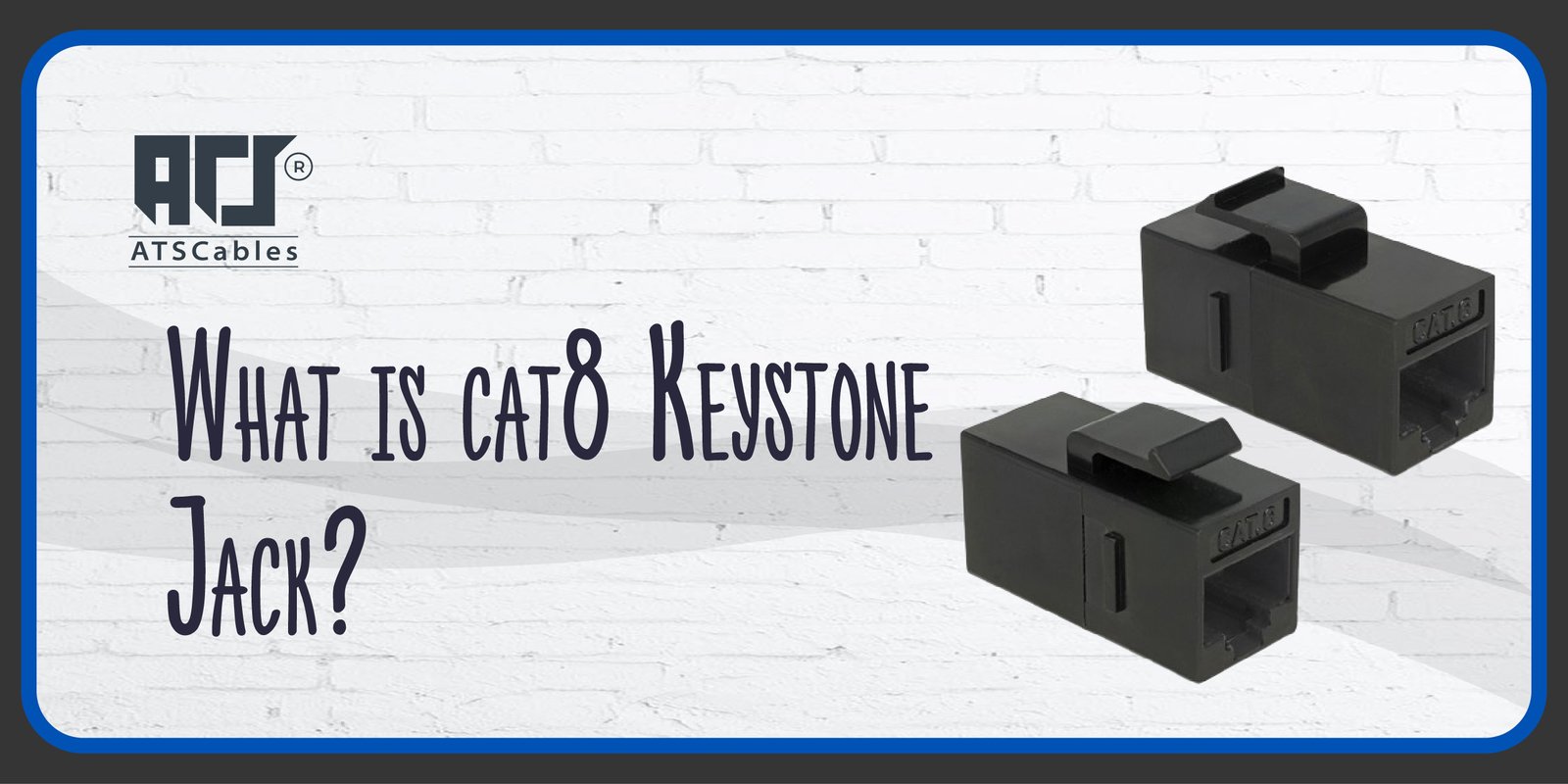
Are you looking for an ethernet setup to support your high-networking needs? If yes, then look no further than the cat8 technology. It provides you with everything you need to meet your networking needs. The keystone ethernet jack is an integral part of the ethernet connections.
Therefore, you need to choose the right cat cables as well as the keystone ethernet jack to meet your needs. The cat8 keystone jack is engineered to support data transfer rates of up to an impressive 40 Gigabits per second (Gbps).
This exceptional speed capability makes them ideal for demanding environments such as data centers, enterprise networks, and high-performance computing facilities. To give you a better idea of what cat8 jacks offer, this article will discuss its key features and how it differs from cat7 jacks. So, without further ado, let’s get right into it.
Let’s start getting a better idea of cat8 jack. A Cat8 keystone jack is a cutting-edge network connector designed to support ultra-high-speed data transfer rates of up to 40 Gbps. Featuring advanced shielding and improved alien crosstalk performance, Cat8 jacks deliver exceptional speed and reliability.
Furthermore, the Cat8 jacks incorporate advanced shielding techniques to minimize electromagnetic interference (EMI) and crosstalk. This way, the ethernet keystone jack can ensure optimal signal integrity and performance.
While both Cat7 and Cat8 represent significant advancements in networking technology, there are key differences between the two that impact their performance and applications.
Cat7 keystone jacks support data transfer speeds of up to 10 Gbps and offer improved performance over Cat6 and Cat5e. They incorporate advanced shielding techniques to reduce interference and ensure reliable data transmission.
On the other hand, the Cat8 technology represents the latest evolution in Ethernet cabling, surpassing Cat7 in terms of speed and performance. Cat8 keystone jacks support data transfer rates of up to 40 Gbps, making them ideal for demanding applications like data centers, high-performance computing, and advanced networking environments.
Here is a breakdown of the differences between the cat7 RJ45 keystone jack and the cat 8 keystone jack:
| Feature | Cat7 | Cat8 |
| Speed | Up to 10 Gbps | Up to 40 Gbps |
| Bandwidth | Lower | Higher |
| Shielding | Advanced | More Robust |
| Connector | RJ45 (common) | GG45 (typical) |
The ethernet connection is given a preference over Wi-Fi due the greater stability and performance. So, if you want to get top-notch data transmission speed, then it is best to give with a CAT8 ethernet setup. This technology is known for the exceptional speed range it offers at greater distances.
One major concern might be with the cat8 setup would be the cost. However, there is no need to worry about that because ATS Cables is here to help you out. From a cat8 wall jack, cable, and connector, to anything else, you can find everything from a single place at the best price!
While both Cat7 and Cat8 are high-performance standards, Cat8 offers significantly higher speeds (up to 40 Gbps) and improved shielding compared to Cat7 (up to 10 Gbps). Cat8 also typically uses the GG45 connector instead of RJ45.
Yes, Cat8 installation requires careful attention to detail. Not using shielded Cat8 cables and connectors or missing out on the termination can lead to a negative impact on the performance. Therefore, it is important to follow the guidelines or get professional assistance for installing Cat8 keystone jacks.
Cat8 is backward compatible with lower-category cables like Cat6a, Cat6, and Cat5e. However, to fully utilize the benefits of Cat8, it’s recommended to use Cat8 cables and jacks throughout the network.
It’s generally not recommended to mix Cat7 and Cat8 components. While it might be physically possible, using a Cat7 cable with a Cat8 jack can limit performance. In addition to that, there is also a good chance that it may not meet the full potential of the Cat8 standard.
Get updates by subscribe our weekly newsletter

Enter your details below to save your shopping cart for later. And, who knows, maybe we will even send you a sweet discount code :)